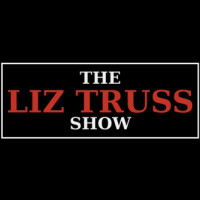Best Of
Re: Ed Miliband’s chances of succeeding Starmer are sizzling like a bacon sarnie – politicalbetting.com
It makes my life considerably harder. Particularly if I don't have my phone. Or I do have my phone but it has no battery.Anyone else fed up with "scanning a QR-code" and "downloading our app" ?No, it makes my life so much easier.
I'm fed up being obligated to interface with the world around me though my phone.
Honestly, the tech of 2007 was entirely fine.
 Cookie
Cookie
3
Re: Ed Miliband’s chances of succeeding Starmer are sizzling like a bacon sarnie – politicalbetting.com
I suspect we're now at a point in politics where the only way to achieve real coalitions between very divided interest groups is through PR.Yes, and I've been a member of Labour for over 50 years as a result of accepting that people will have varying views in detail - insisting on purity ultimately comes down to only accepting yourself. It's a balance, but leadership needs to include some acceptable medium- to longterm perspectives of what we're trying to achieve, as otherwise it's at best negative ("stop maniac X") and at worst a waste of time.That’s fair - but what I think is missing from this is any kind of appreciation that parties of government (or that aspire to government) under a two party system are necessarily coalitions.Perhaps (part of the problems), though I've decided against changing party for the forseeable future. I think however that it's generally true that party leaders need both acceptance by the membership and acceptance by the electorate. It doesn't need to be wild enthusiasm by either, but if either is turned off then the project isn't going to work. Nor should it - if the electorate doesn't like you, basic democracy requires that you don't win, and if the membership doesn't like you, you're not suited to lead it. I think that British political problems are partly caused by over-emphasis on winning at all costs, with actual ambitions to achieve anything in particular seen as secondary. You can't achieve anything unless you win, but you shouldn't even stand if you don't know what you're trying to achieve.Doesn't that just make you part of Labour's problems ?I think we need to pick a shortllist who we're basically OK with before considering electoral appeal, which is elusive and often transitory, and leads to embarrassment even when it works in electoral terms. Essentially a Labour leader needs to both command at least broad acceptance in the party and in the public, and there's no point in choosing a leader who goes out of his way to pick fights with much of the membership. That's why I would struggle to accept Streeting as leader, whether he won an election or not, whereas I'd accept a moderate centrist even if I often disagreed with them. My basic requirement is a broadly acceptable medium-term strategy, and my main criticism of Starmer, who seems pleasant enough, is that he doesn't seem to have a medium-term strategy at all, evem one I'd personally disagree with.Maybe I am projecting, but don't other Labour members also want someone who can appeal to the electorate as a whole and win an election? I just think Wes is so far ahead of the other candidates as a political communicator that it will become obvious that he is the best choice.I think it will be Wes. He is just the strongest candidate and I think will win over the membership when he goes up against the rest of the field. I don't think it makes sense to choose someone like Ed Miliband who has already lost an election. The only worry with Wes is over his own seat, but if he can turn Labour's fortunes around then he should be able to save his own seat in the process.He is probably the one who could best sell a Labour message to the wider electorate. But to members won't it be easy for a rival candidate to pitch to his left without going full Corbynite?
(TBF, I note you are anyway considering joining a different party.)
if you’re insisting on ideological purity, then you’re wanting something that’s essentially undemocratic- seeking majority rule for a set of views which don’t have majority approval.
I’m happy to recognise that you can make similar criticisms of those holding other particular political views, but your “whether he won an election or not” comment is what struck me.
 Nigelb
Nigelb
2
Re: Ed Miliband’s chances of succeeding Starmer are sizzling like a bacon sarnie – politicalbetting.com
Spare us the insulting language, Casino.They probably will. As I've said before, many times, Starmer was a Tedious Tactical Triangulator in opposition and he's now a Tedious Tactical Triangulator in office.If they do it, the aim wouldn't really be "to boost growth" but to polarise the electorate and try to build a coalition based winning as many of the 48% as possible.https://x.com/pippacrerar/status/1997296467195617672What do they know about growth? They spent the best part of a year talking down the economy and were surprised that confidence collapsed.
Informal discussions have taken place inside No 10 on rejoining customs union as quickest way to boost growth
He will end up neither trusted nor respected, so it might not even work no matter what he does.
It's time you recognised that Brexiteers and their project are deeply unpopular. You shat the bed for all of us. Time to be a little less dismissive of those who want to change the sheets.
 Nigelb
Nigelb
3
Re: Ed Miliband’s chances of succeeding Starmer are sizzling like a bacon sarnie – politicalbetting.com
Looking forward to the McLaren boys screwing up to give us the comedy of Verstappen winning the title by a point...
Re: Ed Miliband’s chances of succeeding Starmer are sizzling like a bacon sarnie – politicalbetting.com
https://x.com/deputysecstate/status/1997273185507525058These lunatics need to shut up and fuck right off.
My recent trip to Brussels for the @NATO Ministerial meeting left me with one overriding impression: the US has long failed to address the glaring inconsistency between its relations with NATO and the EU. These are almost all the same countries in both organizations. When these countries wear their NATO hats, they insist that Transatlantic cooperation is the cornerstone of our mutual security. But when these countries wear their EU hats, they pursue all sorts of agendas that are often utterly adverse to US interests and security—including censorship, economic suicide/climate fanaticism, open borders, disdain for national sovereignty/promotion of multilateral governance and taxation, support for Communist Cuba, etc etc. This inconsistency cannot continue. Either the great nations of Europe are our partners in protecting the Western civilization that we inherited from them or they are not. But we cannot pretend that we are partners while those nations allow the EU’s unelected, undemocratic, and unrepresentative bureaucracy in Brussels to pursue policies of civilizational suicide.
Re: Ed Miliband’s chances of succeeding Starmer are sizzling like a bacon sarnie – politicalbetting.com
He flew too close to the solar panels.I saw a comment earlier, maybe a post on X, that I likedDickarus.
“The wax in Zack’s wings is melting”
Re: Ed Miliband’s chances of succeeding Starmer are sizzling like a bacon sarnie – politicalbetting.com
Anyone else fed up with "scanning a QR-code" and "downloading our app" ?I don't mind scanning the code and heading to a website, but downloading the app is incredibly annoying. Uniqlo's automatic scan/email receipt system is the perfect balance IMO.
I'm fed up being obligated to interface with the world around me though my phone.
 Eabhal
Eabhal
1
Re: Ed Miliband’s chances of succeeding Starmer are sizzling like a bacon sarnie – politicalbetting.com
Who was outraged about that? Genuine question, I don't remember anyone complaining about that.It was noticeable how outraged many PBers were about private sector working class wages increasing in 2021-2.Indeed. I’ve always felt views on migration are driven by economic self interest. It’s different to them when it’s working class communities or manual trades having the competition driving wages down.I’ve noted that among my eldest daughters friends (university age), the “politically conscious types” split between “Open Borders” vs “Mass immigration = wage suppression for The Bosses”The sort of people who hated Brexit because they lost their minimum wage cleaners and babysitters.It shows his privilege and comfortable middle-class position, though.One has to think like a Labourite.Labour would be better served by worrying about the Greens and piss diamonds than Reform.
The objective here is to consolidate the left-wing vote in an environment where Labour is bleeding heavily to the Greens and Lib Dems, and in the next election its base alone might put it in contention in a 4-way fight. It isn't to win over "floating voters" to Reform/Tories, and non-Labour voters rooting for Wes Streeting are like non-Tory voters rooting for Rory Stewart.
So, I'd say Ed Miliband has a real chance.
Polanski was not good on QT. His ‘let’s get migrants over to do the jobs we don’t want to do’ is not the winning line he thought it was. As Kelly Osborne found out in the USA.
Which is where most Greens now come from.
The later group seems to be a serious segment of the young. They are left wing with it - usual Left of Labour beliefs. Just absolutely against economic migration.
I was rather surprised. But then again, they are competing for minimum wage jobs…
When it affects them real life takes over.
Compared to how relaxed the same people had been about middle class working from home.
Re: Ed Miliband’s chances of succeeding Starmer are sizzling like a bacon sarnie – politicalbetting.com
BBC:Reform is going to have a major credibility issue if it turns into a retirement home for failed Tories.
"The former Conservative business and Scotland Office Minister, Lord Malcolm Offord, has defected to Reform UK."
Part of its appeal is NOTA.
Not a Tory tribute act for the last 14 years.
 Taz
Taz
1
Re: Ed Miliband’s chances of succeeding Starmer are sizzling like a bacon sarnie – politicalbetting.com
I saw a comment earlier, maybe a post on X, that I likedDickarus.
“The wax in Zack’s wings is melting”


